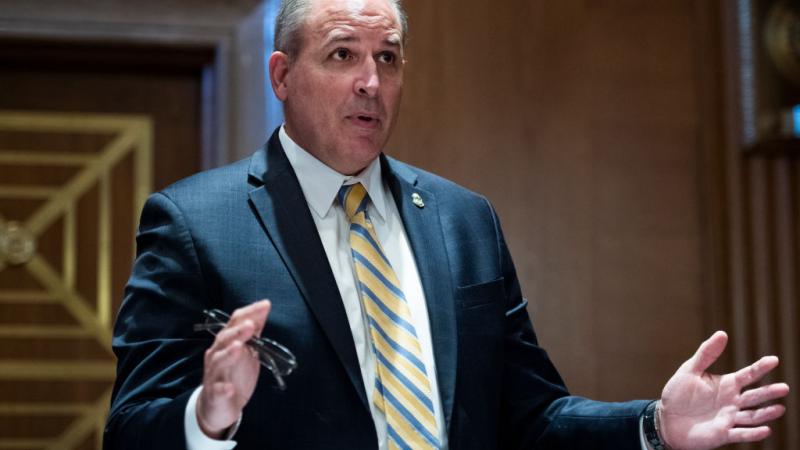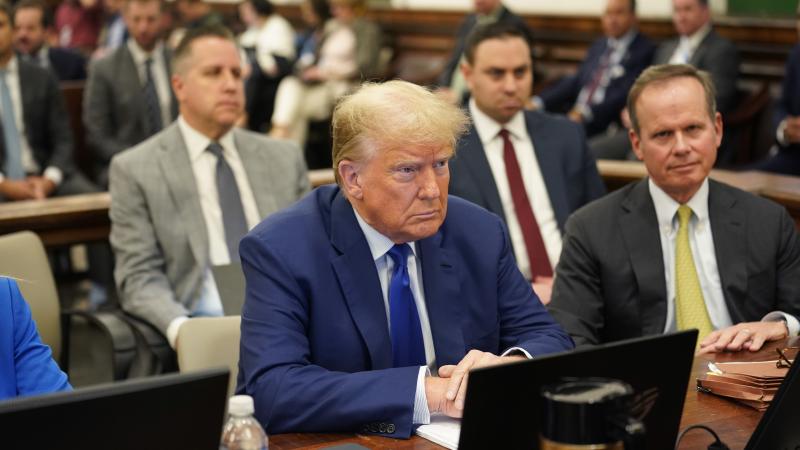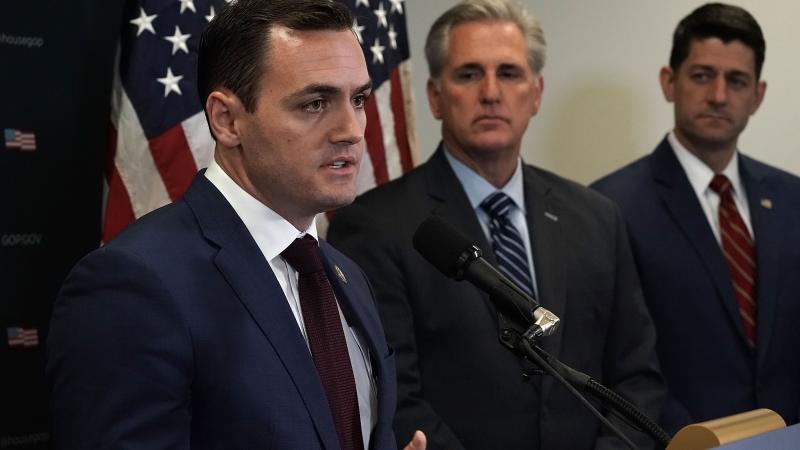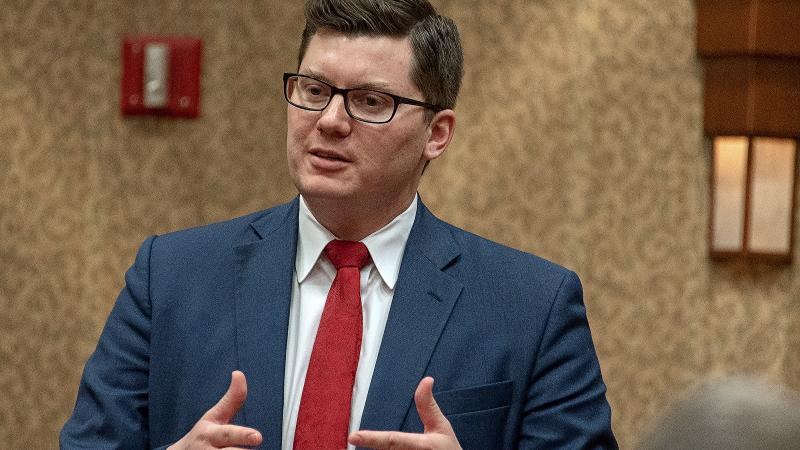American Paul Whelan won't appeal Russian hard labor sentence, seeks release by swap or by edict
Lawyers for man convicted of espionage say trial was a set-up.
Paul Whelan, the ex-Marine convicted last week of espionage in Russia, will not appeal his 16-years of hard labor sentence, but seeks other ways to regain his freedom, his lawyers in two countries said.
“He is a perfect candidate as a Global Magnitsky Act international sanctions case,” Washington, D.C. lawyer Ryan Fayhee told Just the News, while Moscow lawyer Vladimir Zherebenkov today said that Whelan does not trust the Russian legal system to fairly handle an appeal, and instead hopes to be traded for Russian prisoners.
“Today, we met [Whelan] in the detention facility, and after a discussion it was decided not to appeal the verdict because he doesn't believe in Russian justice," Zherebenkov told the Moscow-based Interfax news agency. "He hopes that he will be swapped in the near future for Russians who have been convicted in the United States.”
Whelan, 50, was arrested on Dec. 28. 2018, in Moscow after a Russian friend gave him a flash drive. He was the director of global security for Michigan-based auto parts supplier BorgWarner, at the time of his arrest.
Whelan, who was in town to attend a wedding, said he believed that the drive contained vacation pictures.
Russian prosecutors said that the device contained “state secrets.” After being detained with little access to family, and with limited contact with Western diplomats, Whelan – who has passports from four countries – was tried and convicted of espionage, and sentenced to 16 years hard labor, according to his twin brother, David.
Soon after Whelan was convicted, reports surfaced that the Kremlin hoped to trade Whelan for Russian citizens Konstantin Yaroshenko and Viktor Bout, who are incarcerated in the United States.
Yaroshenko is confined for smuggling drugs. In a separate case, Bout, the so-called “merchant of death” international gunrunner, is in prison on charges related to weapons smuggling – and is the bigger treasure, observers say.
“The Russian government has fever dreams about trading something or someone for Viktor Bout,” David Whelan told Just the News. “They have been talking about trying to get his release for years.”
“They want him back very badly,” said William Acosta, an international criminal defense investigator who has followed the case closely.
Efforts to recoup Bout, or other valued prizes, underlie Whelan’s arrest, Acosta told Just the News.
“It was a setup,” he said. Acosta also said that the FSB, the Russian successor agency to the Soviet KGB, was "working undercover to get this American.”
Despite claims from Russia, Whelan does not work for U.S. intelligence, security officials said.
“He is not our spy,” a government security source said in January 2019, shortly after Whelan was arrested. Among the reasons the source cited is that Whelan has a bad conduct discharge from the Marine Corps, and is not eligible for a security clearance.
Criminal investigator Acosta, who has worked on espionage cases, agrees.
“If this guy was a real spy for the U.S., he would have had diplomatic cover,” he said. “He would have had a diplomatic passport. He would have been immune.”
Swapping Whelan for the imprisoned Russians may set a precedent for more set-ups, according to security authorities.
"Unless Whelan is really a U.S. agent, which nobody actually thinks, then trading him for Bout would be terribly poor value and sends a dangerous message for future swaps," a Belgian intelligence official reportedly told Business Insider.
A likelier way to secure Whelan’s freedom is to use his case as a means to apply the Global Magnitsky Act against Russia, said Fayhee, a sanctions attorney who has prosecuted accused spies.
“Paul’s case fits the fact pattern for the requirements for the Magnitsky Act,” Fayhee said. “There is no transparency there. He is not treated humanely. Paul is in an absolute secret system unable to speak with his family or examine evidence against him."
Secretary of State Mike Pompeo may have telegraphed this approach last week, in a statement demanding that the man be released immediately.
"The treatment of Paul Whelan at the hands of Russian authorities has been appalling," Pompeo said in his June 15 statement. "Russia failed to provide Mr. Whelan with a fair hearing before an independent and impartial tribunal; and during his detention has put his life at risk by ignoring his long-standing medical condition; and unconscionably kept him isolated from family and friends."
The act is named for Russian accountant Sergei Magnitsky, who died in a Moscow prison after investigating corruption and tax fraud. The act allows sanctions against foreigners who participate in human rights abuses or corruption. It allows the president to ban people from entering the United States, and to freeze assets.
“Russia really dislikes these sanctions, be they Ukraine sanctions or the Magnitsky Act,” Fayhee said. “They are very effective at addressing malign behavior. It was designed for this purpose.”
The Whelan family seeks to gain the imprisoned man’s freedom by whatever method works.
“Our family will support either conciliatory or punitive measures and will leave it to the diplomats and politicians to find the right method,” David Whelan wrote in an email.
For humanitarian reasons, efforts should commence quickly, Acosta told Just the News.
“The extreme cold of Russian winters is unbearable,” he said, “even for the people who were born and raised there.”
The Russian Foreign Ministry did not respond to a request for comment.















